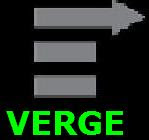Thursday, November 5, 2009
The Wisdom of Crowds
2010 Web Strategy
The following article is from www.baekdal.com
2010 is now only a few months away, and that means that many companies are now in the process of planning next years strategy and budget. So what should your web strategy be for 2010?
Here is something to think about...
The Use Economy
In 2010, the internet will move into the "use economy", as opposed to the "find economy" of the past.
Focusing your strategy around building a website that can be found on Google and present your entire product catalog as a visual stunning and engaging presentation is a thing of the past.
You can't use a campaign. You can't share a product catalog. You cannot make a package a part of your stream.
People do not share or discuss a newspaper or a blog. But if you write a really good article, then that is certainly sharable. Just as you cannot share a shoe campaign, but you can share that one shoe that all your friends talk about.
In the "use economy":
- Content is atomized.
- It's part of a stream
- It about on-going interactions
- It's a part of people's existance
A traditional website doesn't solve any of these challenges, and as such your web strategy for 2010 is not about a website.
It's not about the content either
The biggest change in a use economy is that the focus of your attention is not even about the content itself. Your content plays a very important role in that it functions as the motivator. It is what gets people interested in using it.
But the real value is in the use itself. What do people do with it? What kind of reactions does it create? How do they share it? What kind of conversations does it start? And most importantly, how does it make people feel?
That is the point of the use economy. This is what your brand should be all about. It doesn't matter if it's an article, a pair of shoes, or a cup of coffee.
You web strategy for 2010 should be about people, and interacting with them directly.
Checklist
What to do?
- Focus on how people can use your content or products
- Get people talking
- Help the communication along
- Focus on the long haul, instead of short term interactions.
- Focus on increasing sales via the energy created by your existing customers (i.e. the energy of your existing customers is what persuades new-comers to buy your products)
Where to do it?
- Use every channel that makes sense
- Move your content to those channels (don't use Twitter just to link to your website)
- Support people's environments
- Move your store into their world. If people talk about your products on Facebook, why not also allow them to buy it directly from there?
First time experience:
- Design your social channels in ways that makes it easy to find out what else you have to offer
- Make it easy to take the first step (just being friendly and open goes a long way)
- Encourage first time user to act.
The bigger picture:
- Use your website as the hub for all your activities.
- Show people everything you do, and where you do it.
- Centralize the bigger picture, but de-centralize your network.
- Make sure your internal workflows actually work.
- Make it easy to manage your social universe.
Things not to do:
- Forget your website as a platform
- Forget the technology (people don't care if what you use)
- Forget about creating a package/campaign
- Don't put anything between you and your customers.
- Do not lose your patience. It takes many months to reach critical mass. It takes time to learn what people care about.
In 2010 everything online is about people, communication and using that to your advantage. It's not a platform, it's not a thing, it's not a system, it's not about CMS, it's not about IT, and it's not even about website design.
Wednesday, November 4, 2009
Going Viral?
Blog Archive
-
►
2010
(19)
- ► 07/04 - 07/11 (1)
- ► 06/27 - 07/04 (2)
- ► 06/13 - 06/20 (1)
- ► 06/06 - 06/13 (2)
- ► 05/16 - 05/23 (1)
- ► 02/28 - 03/07 (1)
- ► 01/31 - 02/07 (2)
- ► 01/24 - 01/31 (1)
- ► 01/17 - 01/24 (4)
- ► 01/10 - 01/17 (3)
- ► 01/03 - 01/10 (1)
-
▼
2009
(34)
- ► 12/27 - 01/03 (5)
- ► 12/20 - 12/27 (1)
- ► 12/13 - 12/20 (1)
- ► 11/29 - 12/06 (1)
- ► 11/22 - 11/29 (1)
- ► 11/15 - 11/22 (4)
- ► 11/08 - 11/15 (2)
- ► 10/25 - 11/01 (1)
- ► 10/11 - 10/18 (1)
- ► 10/04 - 10/11 (1)
- ► 09/20 - 09/27 (1)
- ► 09/13 - 09/20 (1)
- ► 09/06 - 09/13 (1)
- ► 08/23 - 08/30 (1)
- ► 06/21 - 06/28 (2)
- ► 06/14 - 06/21 (2)
- ► 05/31 - 06/07 (2)
- ► 05/03 - 05/10 (1)
- ► 04/19 - 04/26 (1)
- ► 04/05 - 04/12 (1)
